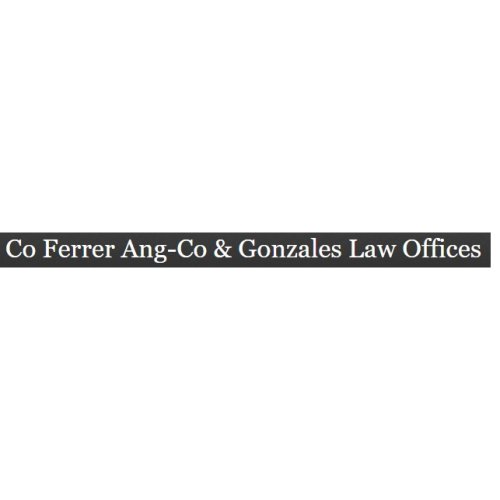Best Land Use & Zoning Lawyers in San Juan
Share your needs with us, get contacted by law firms.
Free. Takes 2 min.
Free Guide to Hiring a Real Estate Lawyer
List of the best lawyers in San Juan, Philippines
Philippines Land Use & Zoning Legal Questions answered by Lawyers
Browse our 1 legal question about Land Use & Zoning in Philippines and read the lawyer answers, or ask your own questions for free.
- Property right of way quesiton
- The land my wife and I purchased and built a house was originally platted based on a provincial road. The provincial road was straightened and our property is no longer directly on the new road. Do we have a legal claim to an access right of way along the original... Read more →
-
Lawyer answer by Kanasra & Mangi Law Associates
If the provincial road was straightened and your property now lacks direct access, you might have a legal claim for a right of way along the original lines if it is the most practical route to access your property. When...
Read full answer
About Land Use & Zoning Law in San Juan, Philippines
Land Use and Zoning in San Juan involves several laws and policies set by both the national government of the Philippines and the local government of San Juan. These laws are in place to manage and control the use of land to protect the environment, keep communities safe, and ensure sustainable development. The principal law governing this area is the National Land Use Act, along with zoning ordinances set by the San Juan City council.
Why You May Need a Lawyer
Knowledge of the law and its implementation can make the difference between successfully navigating the complexities of Land Use and Zoning regulations or encountering potential legal issues. You may need a lawyer if you aim to build or develop property, contest zoning decisions, resolve boundary disputes, or if your property rights are being violated in any manner. Lawyers specialized in this field can also provide you with crucial advice on potential land use restrictions and provide representation for land use or zoning disputes with the local government or other property owners.
Local Laws Overview
In San Juan City, the local government sets zoning ordinances which specify restrictions and requirements for property development, structural design, and permitted land use. These zoning ordinances are typically attached to the city's Comprehensive Land Use Plan (CLUP). Additionally, the city follows directives of the Housing and Land Use Regulatory Board (HLURB), and national guiding documents like the Urban Development and Housing Act (UDHA).
Frequently Asked Questions
1. Can I build a commercial establishment on any land in San Juan?
No. The permitted use of land in San Juan is often dictated by zoning ordinances. You need to check the zoning ordinance relevant to the particular land plot you're interested in before making any decisions.
2. What is a Comprehensive Land Use Plan?
A Comprehensive Land Use Plan (CLUP) provides the overall vision and direction for land use in a city. It indicates what types of development and activities are encouraged where in the territory of San Juan.
3. Can zoning ordinances be challenged?
Yes, zoning ordinances can be contested. However, this is typically a legal process where the aid of a skilled lawyer is recommended.
4. Can property boundaries be disputed?
Yes, property boundaries can often be a subject of dispute. In such cases, legal advice is necessary to navigate the laws surrounding land ownership and boundaries.
5. What happens if I violate zoning laws?
Violations of zoning laws usually result in penalties, which could be fines, cessation of construction or development activities, or even demolition. In serious cases, imprisonment could be ordered.
Additional Resources
You can refer to the official website of San Juan City for their local land use and zoning ordinances. For national laws and guidelines, the Housing and Land Use Regulatory Board (HLURB) and the Department of Environment and Natural Resources (DENR) are useful resources. Legal references like the Philippine Law Reports can also be helpful for more detailed information.
Next Steps
If you are seeking legal advice in Land Use and Zoning in San Juan, consider engaging a lawyer who specializes in this area. It is recommended to have a comprehensive understanding of your issue and relevant documents on hand before consulting a legal expert. Reach out to local law firms, contact the Philippines Bar Association, or use lawyer referral services to find the right legal professional to handle your land use or zoning law concerns.
Lawzana helps you find the best lawyers and law firms in San Juan through a curated and pre-screened list of qualified legal professionals. Our platform offers rankings and detailed profiles of attorneys and law firms, allowing you to compare based on practice areas, including Land Use & Zoning, experience, and client feedback.
Each profile includes a description of the firm's areas of practice, client reviews, team members and partners, year of establishment, spoken languages, office locations, contact information, social media presence, and any published articles or resources. Most firms on our platform speak English and are experienced in both local and international legal matters.
Get a quote from top-rated law firms in San Juan, Philippines — quickly, securely, and without unnecessary hassle.
Disclaimer:
The information provided on this page is for general informational purposes only and does not constitute legal advice. While we strive to ensure the accuracy and relevance of the content, legal information may change over time, and interpretations of the law can vary. You should always consult with a qualified legal professional for advice specific to your situation.
We disclaim all liability for actions taken or not taken based on the content of this page. If you believe any information is incorrect or outdated, please contact us, and we will review and update it where appropriate.








